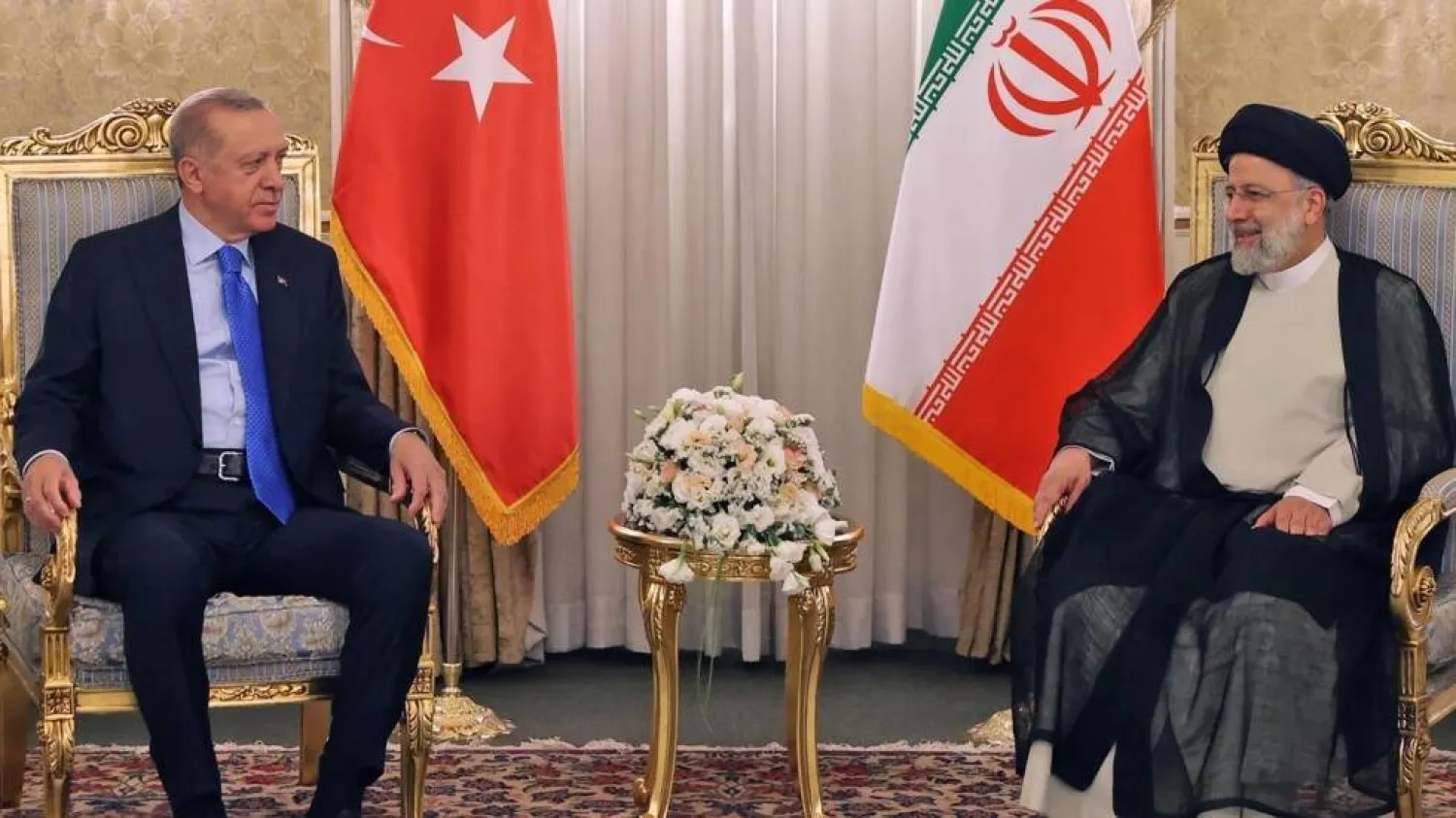Iranian President Ebrahim Raisi was expected to fly to Türkiye on Wednesday for twice-delayed talks aimed at ironing out past differences and trying to halt the spread of the Israel-Hamas war.
Raisi's visit to Turkish President Recep Tayyip Erdogan comes with the war in Gaza starting to inflame tensions and escalate fighting across the Middle East, AFP reported on Wednesday.
The United States and Britain have stepped up joint airstrikes against Iranian-backed Houthi rebels in Yemen in response to their attacks on Red Sea shipping lanes.
Israel has repeatedly targeted Tehran-linked figures in Syria and appears to be on the brink of launching a full-scale war against Iran-backed Hezbollah militants in Lebanon.
Iran and Pakistan last week exchanged strikes against "militant" and "terrorist" targets and Türkiye itself has stepped up attacks against Kurdish groups in Syria and Iran.
The rapid pace of the Middle East escalation forced Raisi to delay his visit to Ankara twice.
His planned talks in Ankara in early January were called off when twin blasts claimed by ISIS extremist group killed 89 people at the shrine of assassinated Iranian Revolutionary Guard Corps general Qasem Soleimani.
A trip he had planned for November was canceled because of conflicting schedules of diplomats involved in consultations over the Gaza war.
'Liberators'
The turmoil engulfing the Middle East since Israel went to war in retaliation for Hamas's October 7 attack has added a new layer of complexity to Türkiye’s close but uneasy relationship with Iran.
Erdogan depicts Iran-backed Hamas as legitimately elected "liberators" and not the "terrorist" organization it has been proscribed as across the Western world.
He has compared Israeli Prime Minister Benjamin Netanyahu to Adolf Hitler for pursuing an offensive that has killed more than 25,000 people -- mostly women and children -- in Gaza, according to the enclave's Hamas-run health ministry.
Relentless Israeli attacks since October 7 have left much of the besieged Palestinian territory in ruins and starved of food.
But Erdogan had initially defended Israel's right to respond to the Hamas raids that resulted in the death of 1,140 people -- also mostly civilians -- according to an AFP tally based on official Israeli figures.
Hamas is still believed to hold around 132 of the estimated 250 people the group took hostage in the worst attack in Israel's history.
Tensions over trade
Analysts note widespread anger in Iran's official and semi-official media about Türkiye’s continuing trade and diplomatic relations with Israel.
These differences add to existing tensions between the two regional powers in Syria -- where they supported opposing camps in the country's civil war -- and in the conflict between Azerbaijan and Armenia over Nagorno-Karabakh.
"Relations between Türkiye and Iran have always been complex and multidimensional," Istanbul's Centre for Iranian Studies director Hakki Uygur told AFP.
"Türkiye has always been able to manage it, to somehow find a middle ground. I think a similar thing will happen now."
Iran's official IRNA news agency said Raisi will be leading a "high-ranking political and economic delegation" on his first official visit to Türkiye since his election in 2021.
Containing the conflict
Iran and Türkiye share a 535-kilometer (330-mile) border and a long history of both close economic relations and diplomatic feuds.
Türkiye backed rebel efforts to topple Iranian- and Russian-backed President Bashar al-Assad during Syria's civil war.
Iran grew increasingly anxious as Türkiye supplied arms to help Azerbaijan beat back Armenian separatists from the Nagorno-Karabakh enclave in 2020 and then again last year.
Tehran fears that Baku's resurgence in the Caucasus region could feed the separatist ambitions of Iran's large ethnic Azerbaijani minority.
Analysts believe the Gaza war has helped put regional disputes on the back burner and force the two leaders to seek a joint approach to the Middle East.
"It is possible that Raisi and Erdogan might declare some symbolic measure about Palestine out of the meeting," said Clemson University professor Arash Azizi.
"But I think their focus will be mostly on how to contain the conflict and make sure it doesn't expand further, something that Ankara and Tehran both want."
Iran's Raisi Expected in Türkiye for Delayed Gaza Talks

Turkish President Recep Tayyip Erdogan (L) visited Iranian counterpart Ebrahim Raisi in Tehran in 2022. Mustafa Kamaci / TURKISH PRESIDENCY PRESS OFFICE/AFP

Iran's Raisi Expected in Türkiye for Delayed Gaza Talks

Turkish President Recep Tayyip Erdogan (L) visited Iranian counterpart Ebrahim Raisi in Tehran in 2022. Mustafa Kamaci / TURKISH PRESIDENCY PRESS OFFICE/AFP
لم تشترك بعد
انشئ حساباً خاصاً بك لتحصل على أخبار مخصصة لك ولتتمتع بخاصية حفظ المقالات وتتلقى نشراتنا البريدية المتنوعة







